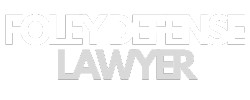Whistleblower Lawyer
Being a whistleblower involves individuals stepping forward to report illegal, unethical, or harmful activities within an organization or institution. Whistleblowers play a vital role in promoting transparency, accountability, and safeguarding the public interest. This act of courage often comes with risks and challenges, but it can lead to positive changes, legal actions, and the exposure of wrongdoing that might otherwise remain hidden.
The Role and Importance of Whistleblowers
As an experienced whistleblower lawyer – including those who practice at Eric Siegel Law – can confirm, whistleblowers act as internal watchdogs who expose activities that pose a threat to the public, the environment, or the organization itself. Their disclosures can encompass a wide range of issues, including corporate fraud, governmental misconduct, workplace harassment, environmental violations, public safety hazards, and more. The significance of whistleblowers lies in several key aspects:
- Transparency and Accountability: Whistleblowers shed light on actions that undermine integrity and legality. By exposing wrongdoing, they hold individuals and entities accountable for their actions, ensuring that they are subject to appropriate consequences.
- Prevention of Harm: Whistleblowers often unveil practices that could lead to harm, whether it’s financial damage, environmental degradation, or threats to public safety. Their actions can lead to timely interventions that prevent these harms from occurring.
- Legal Actions: Many legal cases involving fraud, corruption, and other misconduct are initiated based on information provided by whistleblowers. These disclosures can serve as critical evidence in legal proceedings, leading to convictions and penalties against wrongdoers.
- Ethical Culture: Whistleblowers contribute to fostering ethical organizational cultures by encouraging open dialogue about wrongdoing and pushing for corrective measures. Their actions help create an environment where unethical behavior is less likely to thrive.
- Safeguarding Public Interest: Whistleblowers act as guardians of the public interest, often risking personal and professional consequences to ensure that the greater good is upheld. Their courage benefits society by preventing hidden misconduct.
Challenges and Protections for Whistleblowers
While whistleblowers play an essential role in exposing misconduct, they often face significant challenges and risks:
- Retaliation: Whistleblowers are at risk of facing retaliation from employers, colleagues, or powerful entities. Retaliation can take the form of job loss, demotion, harassment, and even blacklisting.
- Isolation: Speaking out can lead to social isolation and strained relationships within the workplace or community, as some might view the whistleblower as a traitor or troublemaker.
- Legal Complexities: Whistleblowers might encounter legal hurdles, especially if their disclosure involves sensitive or classified information. Navigating legal protections and potential actions can be intricate.
- Psychological Impact: The process of whistleblowing can take an emotional toll on individuals due to stress, anxiety, and fear of the unknown.
To address these challenges, various legal protections and initiatives have been put in place to support whistleblowers:
- Whistleblower Protection Laws: Many jurisdictions have enacted laws that offer legal safeguards against retaliation for whistleblowers. These laws vary in scope and coverage but generally aim to shield whistleblowers from adverse actions.
- Anonymous Reporting: Some organizations provide mechanisms for anonymous reporting, allowing individuals to disclose wrongdoing without revealing their identities.
- Rewards and Recognition: Some laws, such as the U.S. False Claims Act, offer financial incentives to whistleblowers who report fraud or misconduct that leads to financial recoveries.
Being a whistleblower is a courageous act that can lead to positive change and accountability. With that said, it is generally important to seek legal guidance before blowing the whistle to better ensure that one’s interests remain protected moving forward.
